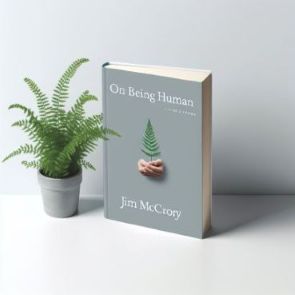
Justice at Our Core, Happiness in Our Wake
When I was young—long before I had the language for it—I carried an instinct for justice. Not the sharp-edged kind that demands punishment, but something quieter and more ancient. A justice that seeks to mend rather than break, that restores balance instead of exacting revenge. It was the kind of justice that lifts the bowed head, that says you matter even while naming what is wrong. I could feel it before I could explain it, as though it had been placed in me prior to thought, prior even to belief. Something existing objectively.
It was around that time that I encountered a passage from the English jurist William Blackstone, a voice that still echoes with calm authority in the foundations of law. He wrote:
“The Creator has so inseparably interwoven the laws of eternal justice with the happiness of each individual, that the latter cannot be attained but by observing the former.”
I did not fully grasp his meaning then, but the words struck something deep and I wrote it in my notebook. They felt less like instruction and more like recognition—an articulation of something already known but unnamed. Blackstone was not describing justice as a cold external system, enforced from above by threat or fear. He was describing justice as woven stitched into the human condition itself. To violate it was not merely to break a rule, but to fracture something within one’s own soul.
Over time, that idea grew with me. Justice revealed itself not as a detached moral abstraction, but as a thread running through conscience, joy, and suffering alike. Like a loom working quietly beneath the surface of our lives, justice binds together who we are and what we become. When we live against it, the fabric frays. When we honour it—even imperfectly—the pattern holds.
Life, of course, tests this belief. I have seen injustice enacted casually and cruelly: in small indignities and in acts that scar entire communities. I have also been unjust myself—silent when I should have spoken, self-protective when I should have been fair. And I have known mercy: moments when kindness arrived unearned, when someone chose restoration over condemnation, and the scales tipped—not because the world demanded it, but because love did.
Existentially, justice poses an unavoidable question: What kind of beings are we, if we can neither escape justice nor fully embody it? We sense it, long for it, resist it, and yet cannot eradicate it. Even when denied outwardly, it persists inwardly, unsettling us. We are haunted not only by what is done to us, but by what we do—and fail to do. In this way, justice is not merely societal; it is deeply personal. It follows us into silence and into sleep.
The scripture at Micah 6:8 captures this unsettling certainty with stark simplicity:
“He has told you, mortals, what is good in His sight
What else does the Eternal ask of you
But to live justly and love kindness
And to walk with your True God in all humility.”
This is not a threat so much as a truth about the moral structure of reality and what God expects from us. But we are free moral agents and it leaves us with a choice. But remember, justice is patient, but it is not forgetful. From the man who cuts the queue at the airport, to the quiet violence of gossip and slander, to acts so grievous they wound history itself—each life is lived within this moral field. We may evade human systems. We may rationalise, excuse, or deny. But justice, woven as it is into creation, remains.
In the end, I believe justice is like gravity: unseen, often ignored, yet always at work. We can pretend it does not exist, but we cannot step outside its pull. And submitting to it wholeheartedly brings a great sense of happiness.
Verse taken from The Voice Bible
The Voice Bible Copyright © 2012 Thomas Nelson, Inc. The Voice™ translation © 2012 Ecclesia Bible Society All rights reserved.
Image by Copilot




